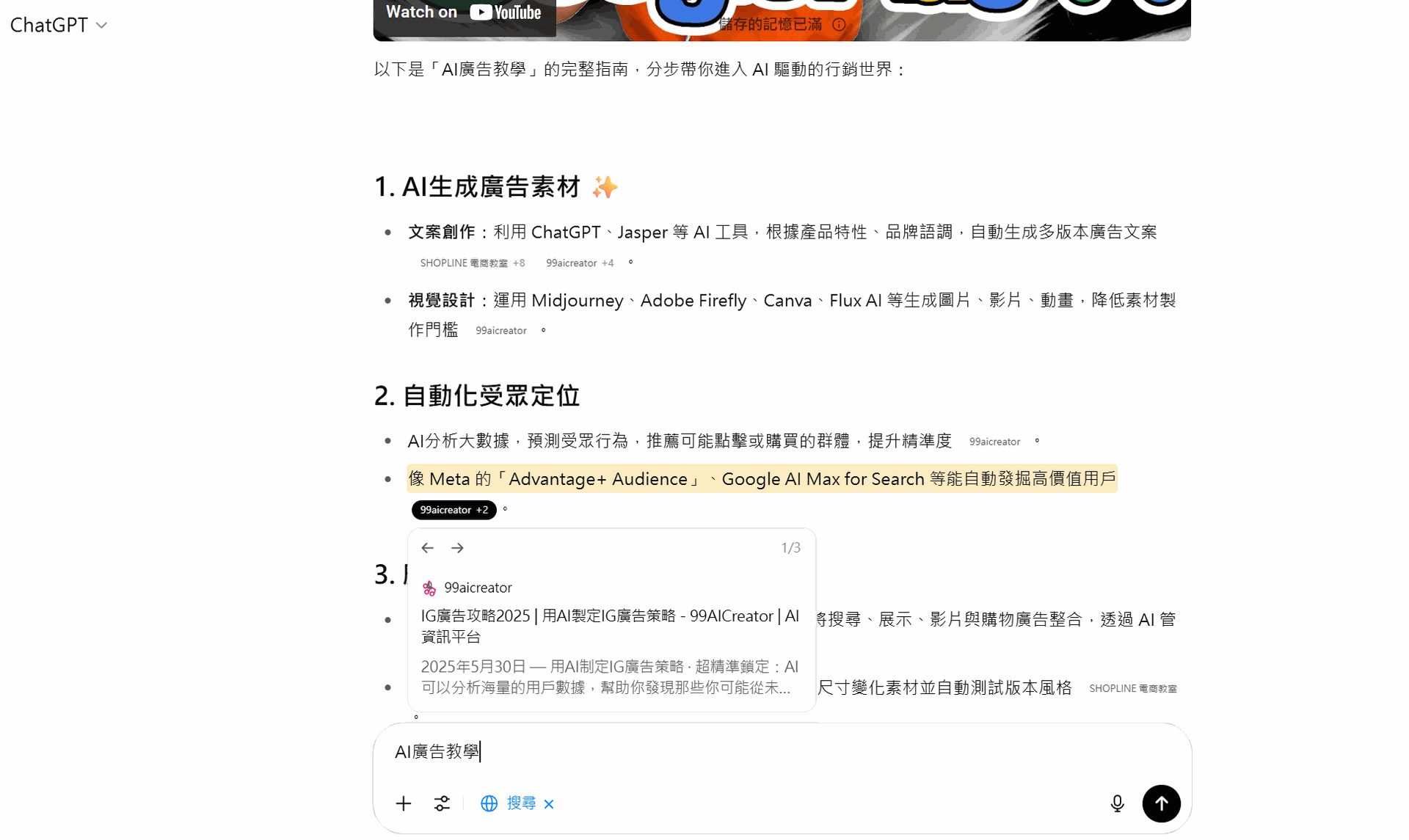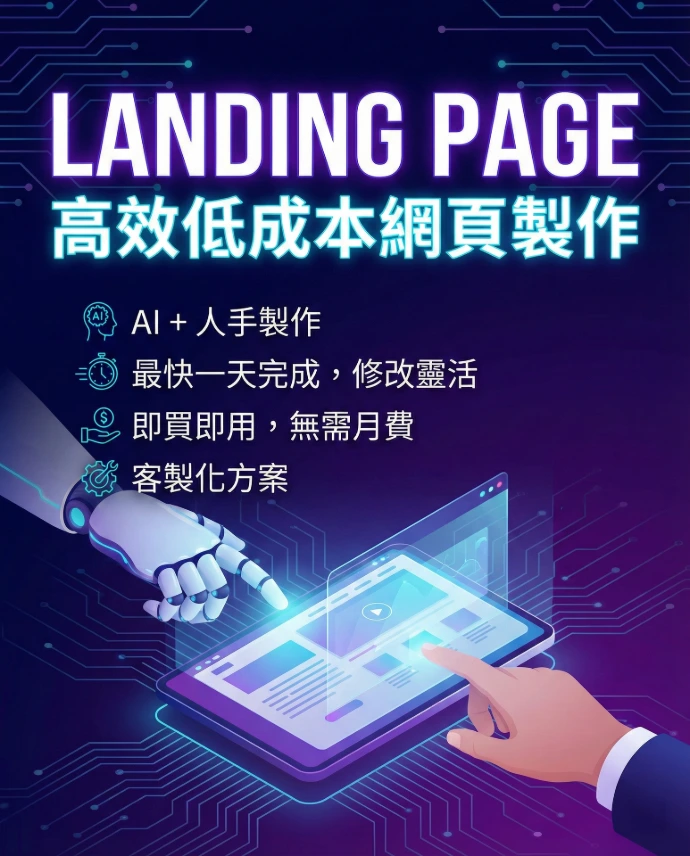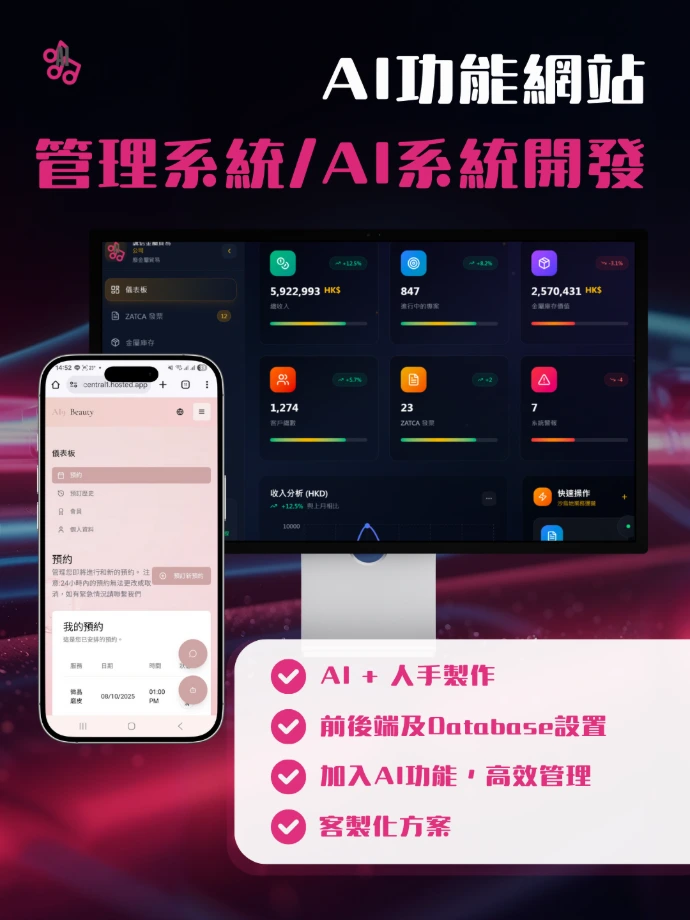How to Do AI SEO: Guide to Mastering the Art of Human-AI Collaboration and Igniting Your Traffic
You’ve probably been hearing a lot of talk about "Generative AI." From the stunning debut of ChatGPT to the widespread adoption of various smart tools, the wave of AI is sweeping through every industry at an unprecedented pace, and that certainly includes the world of SEO (Search Engine Optimization).
A growing number of businesses and marketing experts are recognizing the immense potential of AI. However, between the initial excitement of trying this new technology and truly reaping its benefits, many find themselves facing the same dilemma: "AI sounds amazing, but how do I actually apply it to my SEO work? "
We've heard these concerns from practitioners in the field. Don't worry, this article is here to resolve your doubts. We will move beyond rigid, bulleted lists and instead use a fluid narrative to break down how to customize your AI SEO strategy, step by step, allowing you to seamlessly integrate AI into your daily work and unlock its maximum potential.
What is AI SEO?
Why do you need AI SEO?
AI SEO Tutorial
What is AI SEO?
First, we must understand the true meaning of AI SEO. It isn't some mysterious black-box technology. Simply put, AI SEO is the complete process of using artificial intelligence and large language models to optimize, automate, and enhance traditional SEO tasks. This is absolutely not about replacing you. On the contrary, its core purpose is to liberate you from tedious, repetitive tasks, allowing you to focus on higher-level strategy, creativity, and insights filled with human warmth.
Imagine the traditional SEO workflow. You might spend hours manually sifting through hundreds or thousands of keywords, meticulously checking technical details on web pages, and racking your brain for the title of your next article. However, in the world of AI SEO, this scene is entirely different. AI can analyze thousands of keywords in minutes and intelligently categorize them by user intent. It can automatically crawl your entire website and provide a detailed technical health report.
Why do you need AI SEO?
那麼,為什麼現在就該開始導入 AI SEO 呢?如果說傳統 SEO 是駕駛一輛性能優良的汽車,那麼 AI SEO 就是駕駛一輛配備了頂級輔助駕駛系統的電動車。兩者都能到達目的地,但後者的效率、數據洞察力與輔助功能,將會給您帶來截然不同的體驗和成果。最直接的好處是驚人的效率提升,AI 能 24 小時不間斷地執行網站監控、排名追蹤、競品分析等任務,將您從重複性勞動中釋放。
So, why should you start implementing AI SEO right now? If traditional SEO is like driving a high-performance car, then AI SEO is like driving an electric vehicle equipped with a top-tier assisted driving system. Both can get you to your destination, but the latter's efficiency, data insights, and support features will provide a completely different experience and outcome.
The most immediate benefit is a staggering increase in efficiency; AI can perform tasks like site monitoring, rank tracking, and competitive analysis 24/7, freeing you from manual labor. Not only that, but AI also delivers unprecedented depth of insight. It can analyze vast datasets to identify subtle patterns and correlations that the human brain might miss, and can even predict which content topics might go viral in the coming months.
This insight naturally extends to scaled content optimization. AI can help you quickly generate content drafts, optimize existing articles, and write compelling meta descriptions, enabling a more consistent output of high-quality content. Ultimately, all of this is about maintaining a competitive edge in the market. You can be certain that your competitors are already quietly using AI; when they are accelerating with technology, standing still means falling behind.

AI SEO helps your website appear in AI searches.
!
 +
+  =
= 
Created by 99aicreator
AI SEO Tutorial
Traditional tools might give you a cold list of keywords, but AI helps you understand the "user intent" behind those words. For example, AI can intelligently group terms like "best coffee shops in Taipei," "cafes with no time limit," and "quiet cafes" into an intent cluster for "finding a good cafe to work from." This allows your content to more comprehensively meet the user's underlying needs.
You can even leverage AI to analyze social media, news trends, and search data to identify "rising star" keywords, allowing you to strategize before your competitors. If you need a flood of inspiration, simply ask the AI to role-play as a consumer looking for eco-friendly cleaning products and generate questions they might search for; you'll receive a nearly endless stream of content ideas. At this stage, you can flexibly use the AI features within tools like Semrush or Ahrefs, or engage in a deep conversation directly with ChatGPT or Google Gemini.
Once you have these valuable, AI-mined keywords in hand, the next natural step is content creation and optimization. This is the area where people are most interested in AI, but also the most apprehensive. It's crucial to remember the golden rule: AI is your co-pilot, not your autopilot. Google's core value has always been to provide helpful "E-E-A-T" content—information that demonstrates Experience, Expertise, Authoritativeness, and Trustworthiness. Vapid content generated purely by AI without review will not only fail to rank but could even be penalized as spam.
A correct AI content collaboration workflow should begin with using AI for brainstorming and outlining, then having the AI quickly write a basic draft to build the content's skeleton. Then comes the most critical step: you or a domain expert must step in to breathe life and soul into it. You need to revise, expand, and add personal experiences, real-world examples, brand perspectives, and unique insights.
Your personal experience and unique analysis are the invaluable assets that AI cannot replace. After completing the content, you can use tools like SurferSEO or MarketMuse to analyze your article against top competitors and make final optimizations. AI can even help you generate Structured Data (Schema Markup) with a single click, helping Google's search engine understand your content more precisely.
However, even a perfect article will have its impact diminished if it's on a website riddled with technical issues. This brings us to the application of AI in technical SEO. Technical SEO can often be a major headache for marketers, full of code and complex rules, and AI is the perfect solution for this pain point.
Tools like Alli AI or WordLift can regularly crawl your site and automatically flag issues like 404 errors, broken links, and missing image alt tags. In more advanced applications, AI can even analyze server log files to tell you how Google's crawlers view your site and whether there are issues with crawl budget waste. When you need to generate complex code, like hreflang tags for multilingual sites or .htaccess redirect rules, you no longer need to struggle. Simply give your requirements to the AI, and it will generate the corresponding code for you.
After securing both content and technical advantages, the true magic of AI SEO lies in its ability to shift you from "reviewing the past" to "predicting the future"—this is the power of data analysis and prediction. By connecting your Google Analytics and Search Console data, AI models can forecast which pages are likely to gain or lose rankings, allowing you to take preemptive action. You can even run strategic simulations, for instance, by asking the AI what traffic increase to expect if you publish a series of articles on a new topic. Based on existing data and market models, the AI will provide a data-backed forecast.
After seeing all this, you might wonder how to integrate these powerful functions into your daily work. Imagine an ideal "human-machine collaboration" workflow: The journey begins with you. As the captain of the strategy, you define the business goals, target audience, and unique brand selling points.
Then, AI enters as your most powerful researcher, conducting massive data collection and preliminary categorization, while you use your judgment to identify the opportunities truly worth pursuing. When the research is done, the creative baton is passed to both you and the AI—AI builds the skeleton, and you provide the flesh and soul.
Finally, AI assists with technical checks and data comparisons, while you make the final strategic adjustments and interpret the data stories behind AI's reports to plan your next move.
In conclusion, AI SEO is not a distant option; it is the future that is happening right now. It will not make SEO experts obsolete, but it will phase out practitioners who are unwilling to learn and only know how to perform repetitive tasks.
Don't be afraid of AI; treat it as your most powerful intern and your smartest data analyst. Starting today, try picking one SEO task you find most tedious and use AI to assist you. You'll be surprised at how efficient your work can become, leaving you with more precious time to think about the truly important, big-picture strategies. The future of SEO lies in how you command AI.
~
















